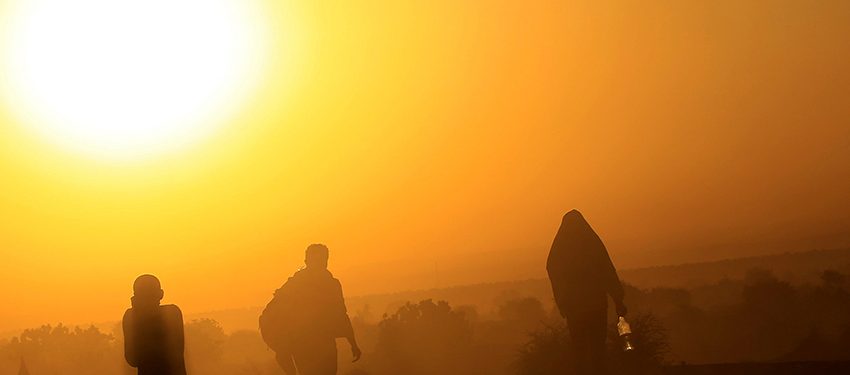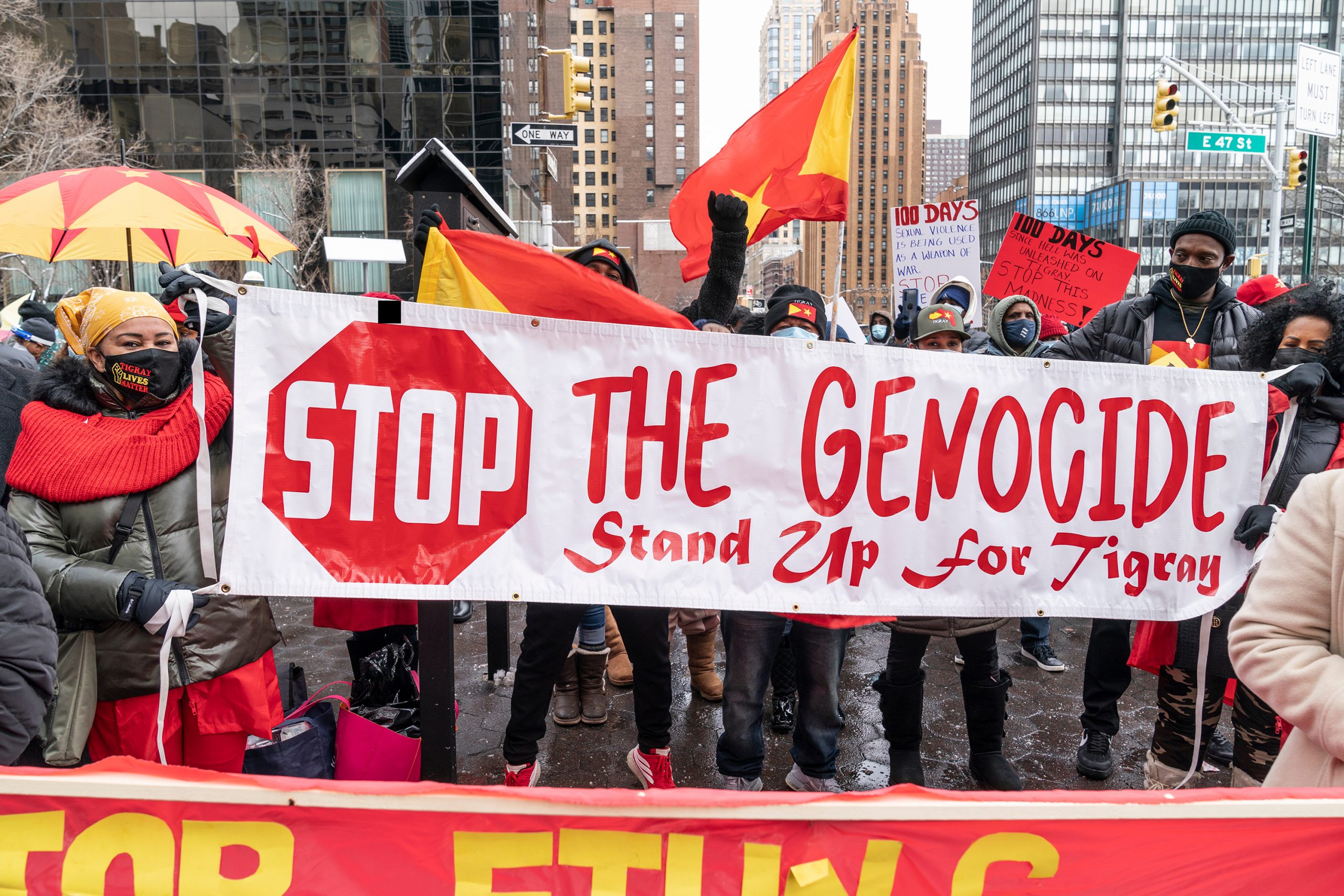
The tragedy of Tigray
While the superpowers squabble over the best course of action, the future of Ethiopia looks increasingly bleak.
Source: International Bar Association
September 30, 2021
Ethiopian Prime Minister Abiy Ahmed was inaugurated on 4 October, after elections took place on 30 September, following delays in three regions. This followed a June general election, widely viewed as less than free and fair, with 90 per cent voting in favour of the Prime Minister. While many boycotted the election, several opposition leaders were in jail and the media had frequently been barred from doing its work.
This has all taken place with the backdrop of a war on Tigray with several parties to the conflict – including neighbouring Eritrea, the Ethiopian defence force, the Tigrayan Peoples Liberation Front and militias from Amhara – the expulsion of seven United Nations personnel in the region last week, and the heightened threat of United States sanctions.
The US says sanctions will be applied in a targeted way to all parties to the war, but these are opposed by China, which views the conflict as an internal matter for the Ethiopian government to deal with. To avoid the sanctions, the warring parties – all of them – would have to sit down together and negotiate an end to the hostilities.
The inauguration, and election process, belies the continuing humanitarian disaster that has lead to millions of lives being placed at risk from hunger, which is increasingly being referred to as famine. Thousands of people have been displaced and many more have met gruesome deaths from an appalling array of atrocities.
The scenario for Ethiopia looks more and more dismal, with some saying the country is in danger of disintegrating. The origins of the war go back to November last year when Ethiopian forces were unleashed on Tigrayans who had attacked an Ethiopian base. It became clear early on that the conflict was not confined to the two groupings. Eritrean forces had joined the Ethiopians in the very ugly war on the Tigrayans. Reports from this conflict began trickling out despite an almost total media blackout: massacres, hunger and rape and sexual assault being used as weapons of war, with aid agencies unable to get through to the region. Thousands of refugees poured into Sudan while hunger set in for those who remained.
For several months after the start of the conflict the media blackout shielded extraordinary atrocities and the use of hunger was added to these
Since then, the conflict has gathered militias and armies from other areas including Afar and Amhara, which adjoin Tigray. While there’s a confusing array of aggressors and victims, it has been clear that the main focus of attack was Tigray, with claims of genocidal intent.
For several months after the start of the conflict the media blackout shielded extraordinary atrocities and the use of hunger was added to these, leading to conditions many deem to be famine. It has brought back uncomfortable memories of the Ethiopian famine in 1984. But, this time, the world’s attention has been diverted by the withdrawal of US and allied forces from Afghanistan.
While the tempo of the war has slowed somewhat, there remains little movement towards negotiations to end it. Matt Bryden is an advisor at Sahan, a Nairobi-based think tank specialising in the Horn of Africa. He says the Ethiopian government has procured combat drones, which Ethiopian Prime Minister Abiy Ahmed hopes will be effective on the battlefield.
Will Ethiopia disintegrate?
With the idea of talks in the air, Bryden says a crucial question would be ‘what a ceasefire might look like’. He says the answers to the question are incompatible with one another. ‘Tigray wants the siege of the area lifted and the withdrawal of all forces’, he says. But, Prime Minister Abiy denies there is a siege and denies there are any obstructions to Tigrayans.
Abiy and others, including the Amhara, have floated an idea that would see Ethiopia taking the lead in any peace process. Who he would talk to is not clear. He says the Tigrayans are terrorists and won’t talk to them. And the Tigrayans, for their part, won’t allow an Ethiopian lead.
The African Union (AU) has blotted its copy book as far as the Tigrayans are concerned by initially dismissing the war as an internal matter to be resolved by Ethiopians. It is nevertheless possible that among those who might be considered part of talks would be Olusegun Obasanjo, a former president of Nigeria and now the AU’s High Representative for the Horn of Africa. He is responsible, among other things, for peace in the region. Bryden believes the AU would eventually have to be involved in any talks, which may also include the US. The Tigrayans, however, believe the AU is not impartial and claim that the chair of the African Union Commission had said that Ethiopia had the right to refuse to acknowledge that the conflict was worthy of attention.

According to Bryden the Tigrayans insist on a ‘national dialogue’ among Ethiopians, with all concerned. Abiy rejects this absolutely. Disintegration becomes a possibility when the parties cannot agree who sits at the table and who is a party to the conflict. The country’s constitution could be called into question. The Tigrayans do not seek independence but they are under pressure from a traumatised younger generation who may force the leadership to put the idea to a referendum within Tigray.
While all this plays out, the humanitarian disaster continues. Most recently Human Rights Watch detailed the massacring by Eritreans and some Tigray militias – two entities that are usually sworn enemies – of Eritrean refugees in Tigray. According to Human Rights Watch, clear war crimes had been committed, with the victims killed and raped. The victims were housed in two refugee camps. Thousands of Eritreans live in Tigray, many having fled the authoritarian Eritrean government.
Aid is still not getting through. United Nations aid agencies say 100 trucks with food and other items need to enter Tigray every day. Fewer than 500 had by mid-September. Very few have returned, causing a shortage of trucks and, therefore, of food.
An election earlier this year returned Abiy to power with a large majority. But, some opposition leaders were in jail, journalists were harassed and many Tigrayans living in Addis Ababa were too, and their passports removed. A new government is to be announced within weeks.
On top of all this, Ethiopia’s status as an economically successful country has slipped. Ratings agencies have downgraded the country, partly because of a serious debt situation, but also because of the war. While China may not want to become involved in the conflict, it is Ethiopia’s biggest bilateral lender with $6.5bn in loans or 23 per cent of the total debt burden of $27.8bn. China is co-chairing a creditor committee that hopes to reorganise the debt.
It can only be hoped that China considers it to be sufficiently in its interests to work with the US, the African Union and others to find a swift resolution to the conflict.
